Gardeners Ham
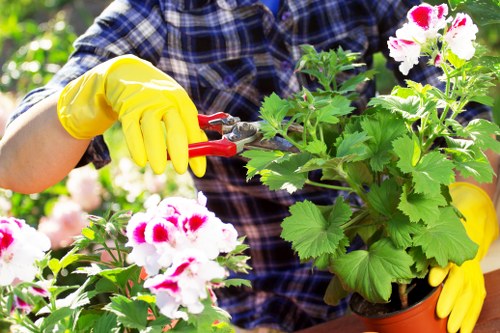
Welcome to Gardeners Ham, your ultimate destination for all things gardening in the charming village of Ham. Whether you're a seasoned gardener or just starting out, Ham offers a picturesque setting with its lush landscapes and vibrant community, making it the perfect place to cultivate your green thumb.
At Gardeners Ham, we understand the unique challenges and rewards that come with gardening in this region. From the soil composition to the local climate, our location-specific insights can help you achieve a thriving garden all year round.
In this comprehensive guide, we'll explore the best gardening practices, essential tools, and the most suitable plants for Ham's environment, ensuring your garden flourishes beautifully.
Why Choose Ham for Gardening?
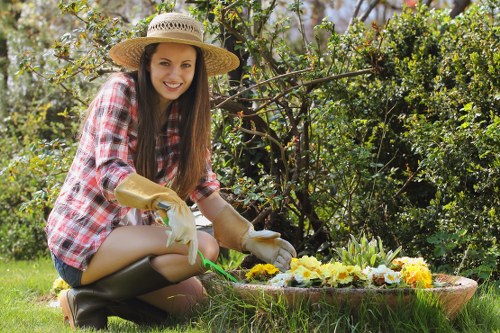
Ham boasts a favorable climate that supports a wide variety of plants. The mild temperatures and adequate rainfall create an ideal environment for both ornamental and edible gardens. Additionally, the fertile soil in Ham is perfect for growing anything from vibrant flowers to hearty vegetables.
The community of Ham is also incredibly supportive of gardening enthusiasts. With numerous local nurseries, gardening clubs, and community gardens, you'll find plenty of resources and fellow gardeners to share tips and experiences with.
Moreover, the scenic beauty of Ham provides a serene backdrop for your gardening activities. Imagine spending your afternoons tending to your plants surrounded by picturesque landscapes and blossoming flowers.
Essential Gardening Tools for Success
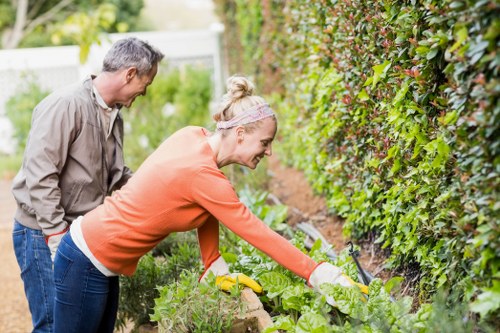
Having the right tools is crucial for maintaining a healthy and productive garden. Here are some essential tools every gardener in Ham should have:
- Spade: For digging and turning the soil.
- Pruning Shears: To trim and shape plants effectively.
- Garden Fork: Ideal for aerating the soil and removing weeds.
- Watering Can or Hose: Ensures your plants receive adequate moisture.
- Gloves: Protect your hands from thorns and dirt.
Investing in high-quality tools will not only make your gardening tasks easier but also enhance the overall health of your garden.
Best Plants for Ham’s Climate
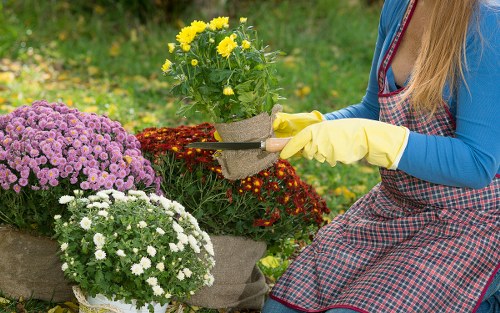
Choosing the right plants is essential for a successful garden in Ham. Here are some top recommendations that thrive in this region:
- Roses: Classic and beautiful, roses add a touch of elegance to any garden.
- Lavender: Known for its soothing fragrance and vibrant color.
- Tomatoes: A favorite among vegetable gardeners, perfect for homegrown produce.
- Herbs: Basil, thyme, and rosemary flourish in Ham’s climate, adding flavor to your kitchen.
- Perennials: Plants like hostas and daylilies come back year after year, providing lasting beauty.
These plants not only thrive in Ham’s environmental conditions but also contribute to a diverse and vibrant garden.
Seasonal Gardening Tips
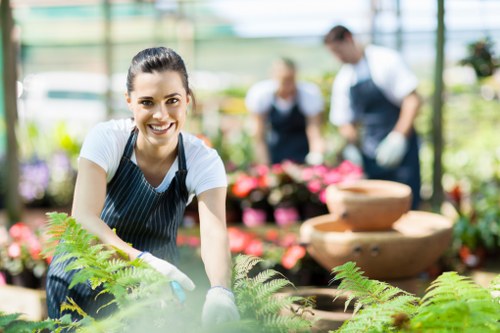
Gardening successfully throughout the year requires adapting to the changing seasons. Here are some tips for each season in Ham:
- Spring: Start planting early-blooming flowers and vegetables. Prepare the soil by adding compost.
- Summer: Ensure adequate watering and provide shade for sensitive plants during hot days.
- Autumn: Harvest your crops and prepare the garden for winter by adding mulch.
- Winter: Protect your plants from frost and plan your garden layout for the coming year.
By following these seasonal tips, you can maintain a healthy and productive garden all year long.
Local Resources for Gardeners in Ham
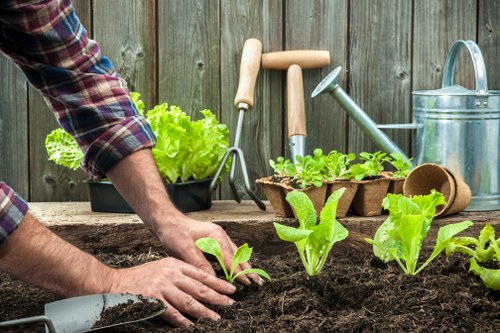
Ham offers a wealth of resources to support gardeners in achieving their gardening goals:
- Local Nurseries: Access a variety of plants and gardening supplies tailored to Ham’s climate.
- Community Gardens: Share space and resources with fellow gardeners, fostering a sense of community.
- Gardening Workshops: Learn new skills and techniques through local classes and seminars.
- Garden Clubs: Join clubs to connect with other gardening enthusiasts and participate in events.
- Online Forums: Engage with a broader community of gardeners for advice and inspiration.
These resources are invaluable for both novice and experienced gardeners looking to enhance their gardening experience in Ham.
Creating a Sustainable Garden
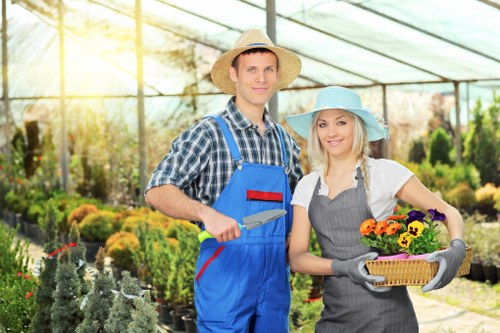
Sustainability is increasingly important in gardening. Here’s how you can create an eco-friendly garden in Ham:
- Composting: Recycle kitchen and garden waste to enrich your soil naturally.
- Rainwater Harvesting: Collect rainwater to use for watering your plants, reducing water usage.
- Organic Pest Control: Use natural methods to manage pests without harmful chemicals.
- Diverse Plant Selection: Plant a variety of species to promote biodiversity and resilience.
- Energy-Efficient Tools: Opt for manual or solar-powered gardening tools to minimize energy consumption.
Implementing these sustainable practices not only benefits the environment but also contributes to the long-term health of your garden.
10 Nearby Areas to Ham for Gardeners

For gardeners in Ham, exploring nearby areas can offer additional opportunities and inspiration. Here are some of the closest areas, each with its unique features:
- Staines: Known for its extensive parks and botanical gardens, perfect for plant enthusiasts.
- Twickenham: Offers community gardens and gardening events throughout the year.
- Richmond: Home to the famous Richmond Park, a great place for nature walks and plant study.
- Kingston upon Thames: Features numerous garden centers and nurseries with a wide selection of plants.
- Weybridge: Known for its beautiful residential gardens and landscaping services.
- Hounslow: Offers workshops and classes for gardeners of all levels.
- Egham: Hosts local gardening clubs and seasonal plant fairs.
- Sunbury-on-Thames: Provides access to riverside gardens and floral exhibitions.
- West Molesey: Features community-supported agriculture and local farming initiatives.
- Chertsey: Boasts historical gardens and heritage plant species.
Exploring these nearby areas can expand your gardening horizons, provide access to new resources, and connect you with a broader community of gardeners.
Common Gardening Challenges in Ham
While gardening in Ham offers many advantages, growers may face certain challenges. Understanding these can help you overcome obstacles and maintain a healthy garden:
- Pest Infestations: Common pests like aphids and slugs can damage plants. Implementing natural pest control methods is essential.
- Soil Quality: Ensuring your soil has the right nutrients and pH balance is crucial for plant health.
- Weather Variability: Sudden changes in weather can affect plant growth. Using protective coverings can mitigate damage.
- Water Management: Both overwatering and underwatering can harm your garden. Monitoring moisture levels is key.
- Weed Control: Regular weeding prevents competition for nutrients and minimizes garden maintenance.
By proactively addressing these challenges, you can create a resilient and thriving garden in Ham.
Innovative Gardening Techniques
Embracing innovative gardening techniques can enhance your gardening experience and productivity:
- Vertical Gardening: Maximizes space by growing plants upwards, ideal for small gardens.
- Hydroponics: Cultivates plants in a nutrient-rich water solution, reducing soil dependencies.
- Companion Planting: Plants different species together to support each other's growth and repel pests.
- Permaculture: Designs sustainable and self-sufficient garden ecosystems.
- Smart Irrigation Systems: Utilize technology to optimize watering schedules and conserve water.
Incorporating these modern methods can lead to a more efficient and eco-friendly garden.
Maintaining Your Garden Year-Round
Keeping your garden in prime condition throughout the seasons requires consistent care and attention:
- Regular Pruning: Removes dead or overgrown branches, encouraging healthy growth.
- Soil Testing: Periodically check soil health to ensure optimal conditions for your plants.
- Mulching: Helps retain moisture, suppress weeds, and improve soil quality.
- Seasonal Planting: Rotate crops and plant season-appropriate flora to maintain garden diversity.
- Pest Monitoring: Keep an eye out for signs of pests and address issues promptly.
By adhering to these maintenance practices, your garden will remain vibrant and productive throughout the year.
Conclusion: Embrace Gardening in Ham
Gardening in Ham offers a rewarding and fulfilling experience. With its supportive community, fertile soil, and favorable climate, Ham is an ideal location for gardeners of all levels. By utilizing the resources and tips provided in this guide, you can cultivate a beautiful and sustainable garden that thrives in Ham's unique environment.
Remember, gardening is not just about growing plants—it's about nurturing a connection with nature, enhancing your well-being, and contributing to a greener community. So grab your tools, choose your favorite plants, and start your gardening journey in Ham today!
Frequently Asked Questions
1. What is the best time to start planting in Ham?
The best time to start planting in Ham is during the early spring when the weather begins to warm up. This allows plants to establish roots before the peak of summer.
2. How can I improve the soil quality in my Ham garden?
Improving soil quality can be achieved by adding compost, organic matter, and conducting regular soil tests to adjust pH levels and nutrient content as needed.
3. What are some common pests to watch out for in Ham gardens?
Common pests in Ham include aphids, slugs, and snails. Utilizing natural pest control methods like introducing beneficial insects or using organic repellents can help manage these pests.
4. Are there any local gardening clubs in Ham?
Yes, Ham has several gardening clubs where enthusiasts can share tips, attend workshops, and participate in community gardening projects. Checking local community boards or online forums can provide more information.
5. How can I make my garden more sustainable?
Creating a sustainable garden involves practices like composting, rainwater harvesting, using organic fertilizers, and incorporating a diverse range of plant species to promote biodiversity.